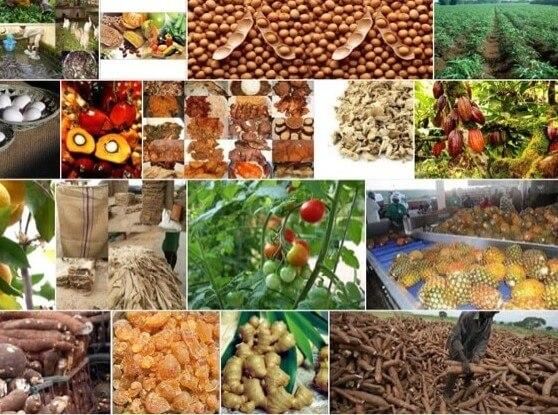The management process of agribusiness is seriously affected by number of environmental factors according to Ebong (2007), which include:
- Formal Education
- Socio-cultural factors
- Lego-political aspects
- Economic variables
1. Formal Education
Formal education of the manager is an essential aid to effective management in any agribusiness ent koerprise. The more educated the manager is, the better his managerial ability.
The person becomes more perceptive, thinks faster and more able to perform through a tailor made education or with a high formal educational attainment.
2. Socio-Cultural Factors
Socio-cultural factor play a significant role in shaping the effectiveness of the managerial process. They represent the most powerful factors and one that the manager has the least control on.
For instance, a manager has to mix freely with different groups of people with diverse cultural background. The knowledge, belief, art, morals, customs and habits acquired by the employees as members of a given society affect their productivity.
3. Lego-Political Factors
This reflects various salient variables and usually they include such factors as government regulations on duties, labour, laws, salary increases through collective bargaining, fringe benefits, bye-laws and statutes that affect the operation of an organization.
Inconsistency in public policies on agribusiness development and political instability in a given economy have important bearing on the functioning of management process of agribusiness organization.
Read Also: The Top Global Trends Driving the Fourth Agricultural Revolution
4. Economic Variables
The effect of this on management depends on the economics system the country operates. For instance, in a socialist system, the effectiveness of a manager is definitely going to be hampered by unrealistic demands by the central authority.
In a free market economy or capitalist economy where prices are not stable, the supply and acquisition of agribusiness inputs will be greatly affected adversely.
Under such system other factors as political instability, foreign exchange problems rapid economic expansion, industrial unrest and entrenched government bureaucracies are likely to set in.
Farm Management Decision

The quality of decisions taken on our various farms determines to a large extent the outcome and productivity of our agricultural economy or the agribusiness sector.
Efficiency in management can lead to an increase in our agricultural output, which will directly affect our national income self-sufficiency in food production, saving of our foreign exchange earnings and eventually meeting the demands of our agro-allied industries.
Since the goal of the farm management is that of profit making, appropriate and sound management decisions must be made towards allocating limited resources to a number of production alternatives to organize and operate the business in a way to attend this noble objective.
There are many decisions that affect the profitability of any farming business. For instance, the decision on what to produce, how to produce, when to produce, whom to produce for, quantity of output to produce, combination of input to employ and how to distribute the output.
The farm manager decides what to produce a list of possible alternatives within his reach. The choice of what to produce depends on the demand of the consumers and the manpower objective.
The farmer or manager must, as a matter of choice, produce what is in great demands by the consumers if he must dispose of his output for profit. But if the manager’s objective is to produce for home consumption (subsistence), then he will produce to meet his family taste and preference.
It is important to note that the objective for which the farmer produces a product affects the quality of the product. The agribusiness manager must also consider how to produce his particular products.
Read Also: Agribusiness Marketing Management Guide
This involves the technology to employ such as mechanization in case of facing high demand; the input to use and in what proportion, over which enterprise are they to be allocated.
The type of production method selected determines the total cost of production since there are different methods and techniques available for producing a particular crop.
The farm manager usually uses the method of production that has the least cost. It is the responsibility of the manager to also decide on the level of output to produce.
There are many possible levels of output for any particular commodity given the available inputs. It is always advisable for managers to produce us much as he can sell.
The manager must always choose the most profitable level of output to produce his given limitations. Decisions taken on our various farms have attendance implications.
Certain characteristics must therefore be observed before taking these decisions, kay (1986) and Ebong (2008), some of which are discussed below:
1. Importance: Generally, decisions vary according to their importance which is measured by the potential gains or losses associated with taking such decision. If the size of the potential loss is greater than the potential gain, it is better to wait until more relevant information (data) is obtained before making such decisions. For instance, the decision to crop more farmland may be more importance than decision to fence a farm area.
2. Frequency: There are some decisions that vary with respect to the frequency with which they are made. For example, the decision on feeding a broiler is done frequently. This kind of decisions are routine kind¸ which means that a feeding regime or schedule can be developed at the beginning of the feeding period and continues with it until condition of the bird demands for a change.
3. Imminence: Imminence by word means the penalty of waiting in order to make decision. Virtually all decisions a farm have expiring time (useful life). After the life of a decision, a penalty will surely be paid if time is wasted in implementing such decision. If the penalty is low, it is better to wait for more information whereas in a high penalty, it is better to take a decision fast.
4. Availability of Alternate: Some situation present a multiple of possible alternatives for decision making while others present only two alternatives. For those that present multiple choices, the farm manager must be careful to delete a number of alternatives based on certain criteria and make decisions only on those alternatives that are relevant to impending circumstance.
5. Revocability: Decision made and revolved have attendance cost. If the cost of changing the decision will be enormous the farmer may not change the decision. For instance, if you decide to go into cocoa production, the cost of destroying the trees is far higher than the decision to grow yam.
Read Also: Meaning and Steps Involved in Waste Recycling
Frequently Asked Questions
We will update this section soon.

